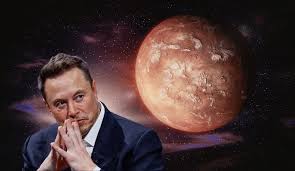
Breaking News
 Wise words (Elon Musk responding to Ron Paul's tweet on the Big Beautiful Bill)
Wise words (Elon Musk responding to Ron Paul's tweet on the Big Beautiful Bill)
 People Are Being Involuntarily Committed, Jailed After Spiraling Into "ChatGPT Psychosis"
People Are Being Involuntarily Committed, Jailed After Spiraling Into "ChatGPT Psychosis"
 Dr. Lee Merritt: What You Need to Know About Parasites and Biowarfare
Dr. Lee Merritt: What You Need to Know About Parasites and Biowarfare
 How We Manage a Garden With 11 Kids (2025 Garden Tour)
How We Manage a Garden With 11 Kids (2025 Garden Tour)
Top Tech News
 xAI Grok 3.5 Renamed Grok 4 and Has Specialized Coding Model
xAI Grok 3.5 Renamed Grok 4 and Has Specialized Coding Model
 AI goes full HAL: Blackmail, espionage, and murder to avoid shutdown
AI goes full HAL: Blackmail, espionage, and murder to avoid shutdown
 BREAKING UPDATE Neuralink and Optimus
BREAKING UPDATE Neuralink and Optimus
 1900 Scientists Say 'Climate Change Not Caused By CO2' – The Real Environment Movement...
1900 Scientists Say 'Climate Change Not Caused By CO2' – The Real Environment Movement...
 New molecule could create stamp-sized drives with 100x more storage
New molecule could create stamp-sized drives with 100x more storage
 DARPA fast tracks flight tests for new military drones
DARPA fast tracks flight tests for new military drones
 ChatGPT May Be Eroding Critical Thinking Skills, According to a New MIT Study
ChatGPT May Be Eroding Critical Thinking Skills, According to a New MIT Study
 How China Won the Thorium Nuclear Energy Race
How China Won the Thorium Nuclear Energy Race
 Sunlight-Powered Catalyst Supercharges Green Hydrogen Production by 800%
Sunlight-Powered Catalyst Supercharges Green Hydrogen Production by 800%
Elon Musk Abandons Mars Dreams, Peter Thiel Claims: 'There's Nowhere to Go'

In a recent interview with Ross Douthat for the New York Times, Thiel revealed that the Tesla and SpaceX CEO no longer envisions a Martian colony as a viable project for humanity to establish a new society. "2024 is the year Elon stopped believing in Mars," Thiel stated.
Musk has long been an advocate for interplanetary expansion, but Thiel argues that the vision has shifted.
What was once an ideological pursuit has now become purely technological. Musk previously claimed that humans could reach Mars by 2028 and emphasized last month on Fox News that establishing a colony on the Red Planet is crucial for ensuring "the long-term survival of civilization in the hopefully unlikely event that something terrible happens to Earth."
Following Musk's recent departure from the Trump administration, he has been focusing more on SpaceX. However, his aspirations faced a major setback last week when one of his "Starships" suffered a "catastrophic failure" and exploded.
Thiel claimed to the New York Times that "Mars was supposed to be a political project; it was building an alternative. And in 2024 Elon came to believe that if you went to Mars, the socialist US government, the woke AI would follow you to Mars."
This change of heart, according to Thiel, stemmed from a conversation Musk had with Demis Hassabis, the head of Google DeepMind AI in London. The discussion revolved around whether AI or interplanetary travel would represent the most significant technological breakthrough. After Hassabis remarked, "Well, you know my AI will be able to follow you to Mars," Musk reportedly went silent.

 He 3D Printed a Whole House
He 3D Printed a Whole House

